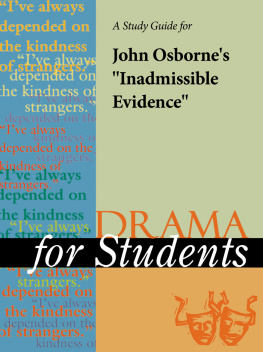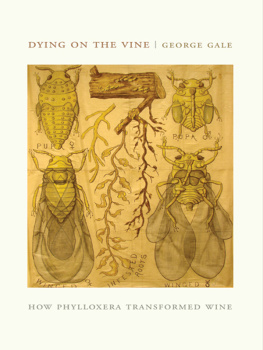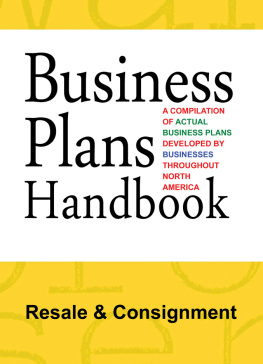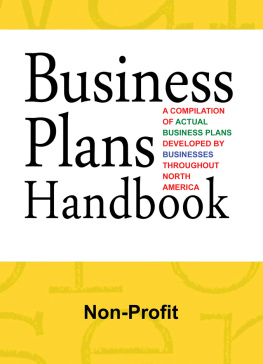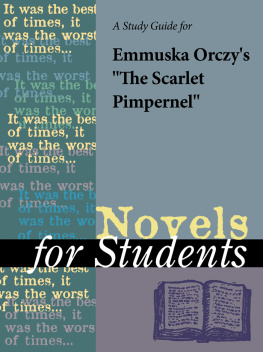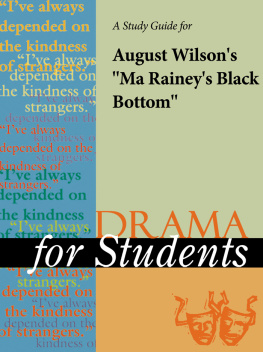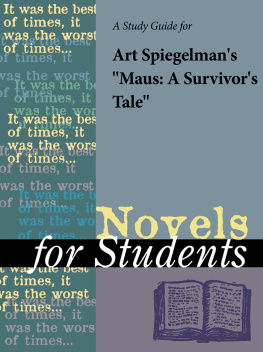TABLE OF CONTENTS
Guide
Drama for Students, Volume 24
Project Editors: Jennifer Greve and Ira Mark Milne
Rights Acquisition and Management: Margaret Chamberlain-Gaston, Lisa Kincade, Andrew Specht
Manufacturing: Drew Kalasky
Imaging: Lezlie Light, Mike Logusz, Kelly A. Quin
Product Design: Pamela A. E. Galbreath
Product Manager: Meggin Condino
2007 Gale, a part of Cengage Learning Inc.
Cengage and Burst Logo are trademarks and Gale is a registered trademark used herein under license.
For more information, contact
Gale, an imprint of Cengage Learning
27500 Drake Rd.
Farmington Hills, MI 48331-3535
Or you can visit our Internet site at
http://www.gale.com
ALL RIGHTS RESERVED
No part of this work covered by the copyright hereon may be reproduced or used in any form or by any meansgraphic, electronic, or mechanical, including photocopying, recording, taping, Web distribution, or information storage retrieval systemswithout the written permission of the publisher.
For permission to use material from this product, submit your request via Web at http://www.gale-edit.com/permissions, or you may download our Permissions Request form and submit your request by fax or mail to:
Permissions Department
Gale, an imprint of Cengage Learning
27500 Drake Rd.
Farmington Hills, MI 48331-3535
Permissions Hotline:
248-699-8006 or 800-877-4253, ext. 8006
Fax: 248-699-8074 or 800-762-4058
Since this page cannot legibly accommodate all copyright notices, the acknowledgments constitute an extension of the copyright notice.
While every effort has been made to ensure the reliability of the information presented in this publication, Gale, an imprint of Cengage Learning does not guarantee the accuracy of the data contained herein. Gale, an imprint of Cengage Learning accepts no payment for listing; and inclusion in the publication of any organization, agency, institution, publication, service, or individual does not imply endorsement of the editors or publisher. Errors brought to the attention of the publisher and verified to the satisfaction of the publisher will be corrected in future editions.
ISBN-13: 978-0-7876-8120-3
ISBN-10: 0-7876-8120-2
e-ISBN-13: 978-1-4144-1037-1
e-ISBN-10: 1-4144-1037-9
ISSN 1094-9232
Printed in the United States of America
10 9 8 7 6 5 4 3 2 1
Inadmissible Evidence
John Osborne
1964
Introduction
The first performance of Inadmissible Evidence at the Royal Court Theatre in London on September 9, 1964, by the English Stage Company, was a resounding critical and popular success. It also reinforced John Osborne's status as England's most important post-World War II dramatist. The play chronicles the mental disintegration of middle-aged, London solicitor Bill Maitland over the course of two days as he experiences the breakdown of his professional and personal life. Osborne combines elements of realism and theater of the absurd as he illustrates Bill's nightmarish world that ironically Bill has constructed himself. It results from his inability to face up to his own failures as well as to the pain he has caused those who have tried to save him. In this poignant study of one man's struggle to avoid harsh truths about himself and his relationships with those closest to him, Osborne presents a compelling portrait of the devastating causes for spiritual and emotional bankruptcy.
Author Biography
John James Osborne was born December 12, 1929, in London, England, to Thomas Godfrey Osborne, a commercial artist and copywriter, and Nellie Grove Osborne, a barmaid. Much of his childhood was spent in ill health and in poverty, especially after his father died of tuberculosis in 1941. Osborne earned a General School Certificate from St. Michael's, a boarding school in Devon, but never went further with his education, which made him feel like an outsider among the intellectual group of playwrights with whom he was grouped in the 1950s.
After graduating, he wrote for trade journals for a few years but left to take a position as a tutor for child actors in a touring company. He worked his way up in the troupe to assistant stage manager, and in 1948, he began acting in their productions. Osborne toured the country with the troupe for the next seven years, during which time he began writing plays, including The Devil Inside Him, with Stella Linden, first performed in 1950, and Personal Enemy, with Anthony Creighton, produced in 1955. Osborne, however, could get neither play published and ran into trouble with the Lord Chamberlain's Office concerning the latter play, which deals with homosexuality, forcing Osborne to delete key scenes.
While his Look Back in Anger, which premiered on May 8, 1956, earned mixed reviews, the impact the play had on the theater became legendary due to its biting commentary on postwar England and the status of the British working class, as well as to its influence on an entire generation of playwrights. Osborne, who like Anger's Jimmy Porter came to be known as an angry young man, gained a reputation as a result of this and other plays, as well as in the press, as a controversial figure who spoke his mind about political and social issues of the age, including the Lord Chamberlain's Office's censorship power over the theater. His personal life became as tumultuous as that of his characters: he married five times and was estranged from his daughter for a long time.
Osborne enjoyed a long, successful career in the theater, penning over twenty plays, as well as several television dramas and screenplays, including one for the celebrated film Tom Jones. He received several awards during his career, including the Evening Standard Drama Award for the most promising playwright of the year for A Patriot for Me in 1965 and for The Hotel in Amsterdam in 1968; the New York Drama Critics Circle Award for Look Back in Anger, and for Luther (1961); a Tony Award in 1964 for Luther; an Academy Award for best adapted screenplay in 1963 for Tom Jones; the Plays and Players Best New Play Award in 1964 for Inadmissible Evidence, and in 1968 for The Hotel in Amsterdam; and the Award for Lifetime Achievement from the Writers' Guild of Great Britain, 1992, the same year his final play, Djvu, was staged. Inadmissible Evidence was published by Faber and Faber in 1965.
Osborne wrote two autobiographies, A Better Class of Person (1981) and Almost a Gentleman (1991). Osborne, a diabetic, died of heart failure on December 24, 1994.
Plot Summary
Act 1
Inadmissible Evidence opens with a dream sequence in a solicitor's office, involving the main character, Bill Maitland, and his trial for "having unlawfully and wickedly published a wicked, bawdy and scandalous object. Intending to vitiate and corrupt the morals of the liege subjects of our Lady the Queen." The object is Bill Maitland himself. Bill pleads not guilty and insists that since he is a lawyer, he will defend himself. He tries to begin his defense, but random thoughts keep breaking in, and he ultimately admits, "I'm incapable of making decisions." The session is interrupted by Bill searching for his tranquilizers, noting that he has a headache brought on by too much drinking the night before.

